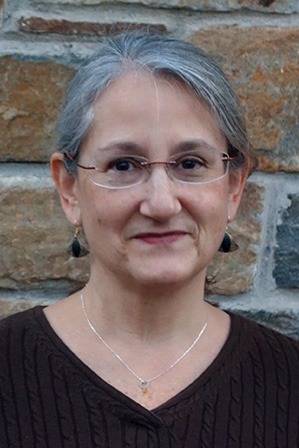Making the Case for Subnational Diplomacy
Letter from the Editor
BY SHAWN DORMAN

Welcome to this jam-packed double edition of The Foreign Service Journal to start the new year. In addition to our regular lineup, this issue features an exclusive interview with Secretary of State Antony Blinken, as well as a first-person account of Moscow Signal, predecessor to Havana syndrome.
The January-February focus on subnational diplomacy, also known as city and state diplomacy, offers much food for thought. It spotlights a major policy proposal now under discussion at State, among foreign policy professionals and before Congress.
Local officials and entities have, of course, been engaged in international relations for decades, mostly independent of federal government channels. Is it time to establish a State Department Office of Subnational Diplomacy to leverage that work? The City and State Diplomacy Act, were it to pass, mandates creation of such an office.
Following a special note from the FSJ Editorial Board to kick off the discussion, our contributors make the case for subnational diplomacy. FSO Maryum Saifee writes from the standpoint of national security. A shout-out to her for pitching this topic and for connecting me to Luis Renta of the United States Conference of Mayors. His recommendations for local officials as authors were invaluable.
William Peduto, Pittsburgh’s mayor until recently, explains how his city leveraged relationships with cities across the world to transition to a sustainable future. Mayor of Des Moines Frank Cownie shows how work at the local level in America bolsters global climate leadership.
Former FSO Emerita Torres, now a Democratic state committee member for the Bronx, spells out how local-federal partnerships can build popular trust in U.S. foreign policy priorities.
Nina Hachigian, a former ambassador and Los Angeles’ first deputy mayor for international affairs, argues that breaking down silos between foreign and domestic policy will help make international affairs more relevant for middle-class Americans.
Subnational diplomacy is a natural fit for the Biden administration’s emphasis on implementing a “foreign policy for the middle class,” as it can link U.S. relationships globally with what matters to Americans locally.
Related, and fortuitously, Secretary Blinken gave a speech at FSI on Oct. 27, laying out his proposals for State reform. One of his priorities, he said, is to “focus more of our diplomacy here at home to make sure our policies reflect the needs, the aspirations, the values of the American people.”
We were delighted to have an opportunity to dig deeper, to pose questions to the Secretary regarding the specifics of his plan and how that will affect Foreign Service members. You can see his responses in the written interview, “On Moves to Modernize,” our cover story.
Amid all this, we remain perplexed and vexed by the anomalous health incidents, or Havana syndrome, that have stricken some 200 U.S. officials and family members in multiple countries. The cause and source still unknown, one strong theory is targeted microwaves.
This theory conjures up memories of Cold War Moscow, when the Soviets beamed microwaves at the U.S. embassy for decades. Studies were done, but the health impacts are still unclear. In “Before Havana Syndrome, There Was Moscow Signal,” Soviet hand FSO (ret.) Jim Schumaker fills us in on the back story, the known knowns and the known unknowns, including how Moscow Signal may, or may not, link to Havana syndrome. It’s must-reading.
This hits home for me, as I worked in Embassy Moscow’s political section in 1987-1988. I sat in a small, shared office on a “secure” (firetrap) floor of the old chancery with a window overlooking the ring road. It was a window supposedly, probably, maybe being beamed with microwaves by the Soviets.
It was just a curiosity to me. I was only 22, still invincible. But what was known then? What is known now? To any of you who served in Cold War Moscow or in the region, we’d love to hear what you recall.
There’s more in this edition, including the always-anticipated annual AFSA Tax Guide, Marc Grossman’s appreciation of Colin Powell, and Lindsay Henderson’s work on rediscovering State’s lost history.
Please write us at journal@afsa.org, join us on LinkedIn and sign up for FSJ emails. Best wishes for a healthy, peaceful year ahead.

